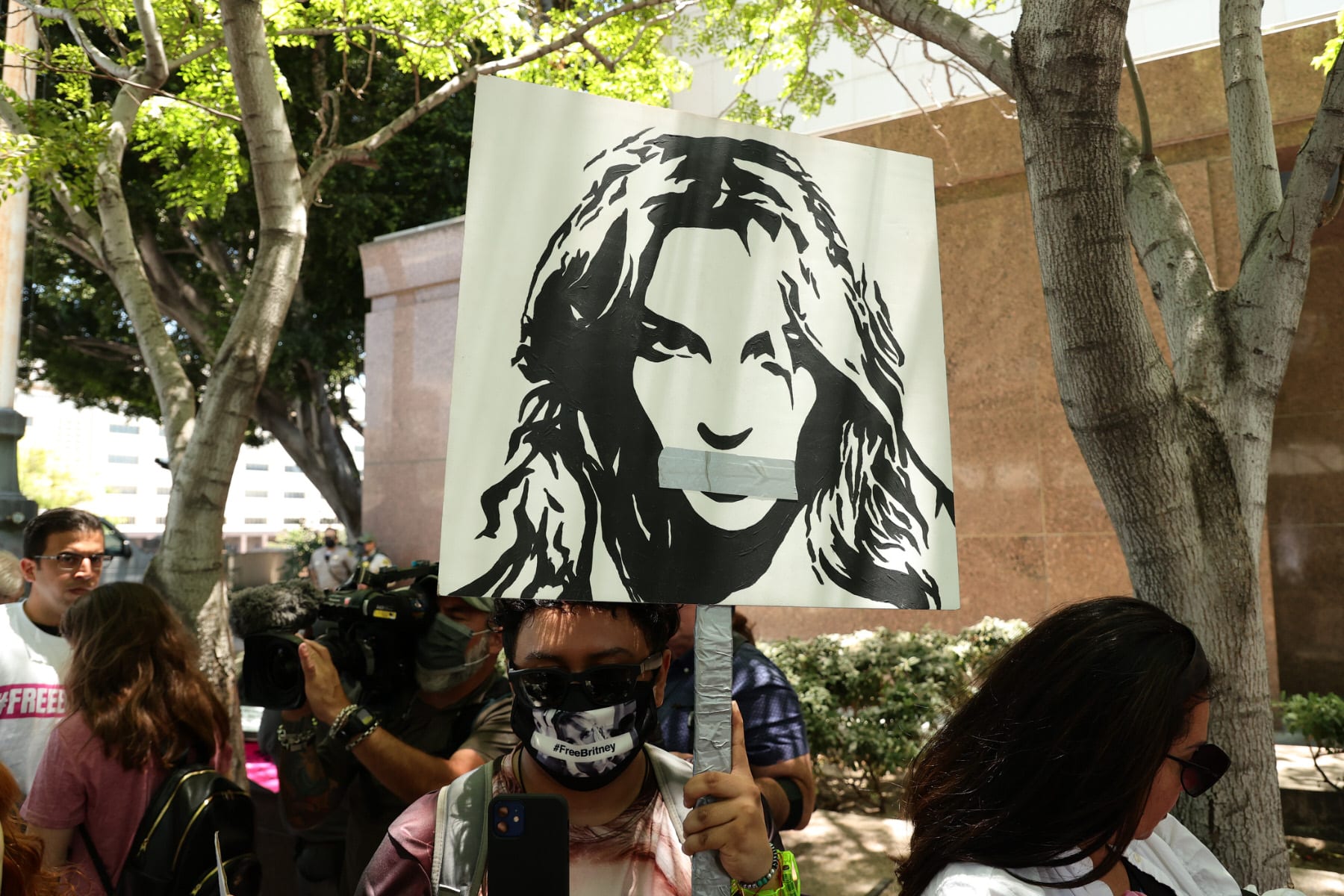Britney Spears, who was granted the right to hire her own counsel for the first time in 13 years, announced this week that she planned to sue her father, Jamie Spears, citing conservator abuse. The pop star told Judge Brenda Penny that she has been afraid of her father’s alleged drunken rages ever since her childhood and that allowing him to continue as her conservator is “allowing my dad to ruin my life.”
Spears’ fast-paced, chilling testimony about what it has meant to live in fear of her father for so many years once again calls attention to a situation faced by so many others: The reality that the legal system often weaponizes women’s emotions to keep them locked in the abusive family systems they are trying to escape.
“The legal system is not well-equipped to understand the rhythms of familial abuse,” Melissa Murray, the Frederick I. and Grace Stokes Professor of Law at the New York University School of Law. “Law is a blunt instrument and psychology and human behavior are more nuanced, but the law is not equipped to deal with that.”
Murray pointed to battered woman syndrome as an example, and the fact that someone being abused often stays with their abuser or welcomes them back into their life.
“Psychology says that this is a part of the cycle of abuse, but this is then held against [survivors] when they seek legal recourse against their abusers. There is a way that women are expected to never complain, and then penalized when they do.”
In Britney Spears’ case, allegations about her mental health have been the throughline from the beginning. Taking an umbrella to the car of a paparazzo who was following her and shaving her head in the wake of her custody battle with Kevin Federline were used not only to deny Spears’ equal custody of her two children, but also to establish the personal and financial conservatorship over her by her father Jamie. The conservatorship came out of what her family said were concerns for her mental state during her divorce and custody battle — and has remained in place for ever since, for 13 years running.
Spears has long talked about her parents’ strained marriage; her mother, Lynne Spears, was largely helping the young Britney’s career while dad Jaime was dealing with alcoholism that frequently led to aggression. Legal experts have long noted that courts should understand that children witnessing domestic abuse between their parents is a form of abuse itself. Britney has called her parents’ divorce “the best thing that ever happened to my family.”
The story of the Spears’ marriage, and its potential long-term effect on Britney, is one that is unfortunately not unique, Joan Meier, a clinical professor of law and the director of National Family Violence Law Center at George Washington University, told The 19th. When women claim any sort of familial or domestic abuse, whether against a partner or parent, that allegation can be turned against the accuser. Worse still is what can happen if abuse is raised by a woman, whether it is proved or not, said Meier. Just claiming abuse can be used against the person making the claim.
“Generally, women and children are victimized a lot by men and by fathers, and society has a number of layers for denying and ignoring that,” Meier said.
Sometimes, this cycle of abuse continues past a girl’s childhood and into adulthood. Meier said she has seen multiple cases in her career where fathers have colluded with their own daughters’ ex-husbands to see their children taken away from them through custody settlements. She explained that this can happen when an abusive parent resents that they no longer have the same degree of control they once had over their now-adult adult child.
Allegations of mental illness against the mother can also arise in custody battles. This is, in fact, exactly what happened to Spears. To date, she still does not have 50-50 time with her children, and her conservatorship further restricts what that time can look like.
Meier pointed out that no scientific argument has ever been presented arguing that a mother with mental illness who loves and is loved by her children is inherently causing her children harm simply because she has some form of disability.
Abuse can play out publicly when a parent takes an adult child to court or attempts to get them hospitalized for a mental illness, all tactics adopted by an abuser to prevent a grown child from freeing themselves from family systems of abuse that cannot be carried over in the same way once a person is no longer a child.
In custody battles, Meier said, “Women’s emotions are pathologized and then they are given mental disorder labels and have their children taken from them.”
This, certainly, has played into Spears’ own conservator case, which stemmed from her own custody battle with Federline, her ex-husband. Meier explains that the “holy grail” in family court is that custody arrangements should be shared between parents. Mothers who object to this often face consequences, she said.
“The pathologizing of mothers who resist default custody arrangements or don’t want to give up custody to the father is endemic,” she said. “And when mothers get upset, they are then called mentally ill. When they get angry, they are then called mentally ill.”
These labels of mental illness and disability can then continue to plague them as they continue to navigate the legal system. It has put Spears in the public eye for years as she has continued to perform and earn money even as the legal system limits her access to that income.
Also at play when there are allegations of abuse or domestic violence of any kind in a family is the issue of what’s known in the legal system as a label of “encapsulated delusion,” Meier said. This is when a woman is determined to be delusional by the court — but only about her allegations of her or her children having been abused. In these situations, she’s deemed to be completely functional and mentally sound in the other aspects of her life — including her professional life and performance.
Spears has been in the spotlight with her conservatorship in place, even taking up a performance residency in Las Vegas, but any person’s public-facing life is only part of the story.
“The law scaffolds this legal understanding that what happens in families is private,” Murray said. “But when it becomes abusive, then the state intervenes. But how do we find out when something is abusive if families are supposed to be kept private?”
Spears’ wealth and privilege could have also helped in perpetuating the abuse against her. Members of Spears’ family relied on her wealth and talent as their own source of economic sustenance, Murray pointed out.
Murray also noted that one large divide that exists between what is currently playing out with Spears and what happens in the more commonly seen family abuse scenarios within the child welfare system is that in that system, “children are mainly Black and Brown and don’t have the benefit of years in the spotlight.” They also, Murray said, don’t have the benefit of any modicum of privacy, as any interaction with any form of public support insists on all family life being put on display in exchange for accessing this kind of government-funded assistance.
“Families in the child welfare system, their lives are made public through public assistance. State subsidies preclude privacy,” said Murray. “Which is what makes Britney different: She’s wealthy and privileged, but that still wasn’t enough to insulate her from this kind of abuse nor enough to allow people to see what was really going on.”







